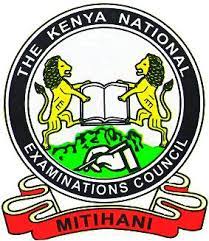
KCSE Past Papers 2016 History Paper 1
History and Government paper 1
SECTION A (25 marks)
Answer all the questions in this section.
1. Identify one disadvantage of using anthropology as a source of information in History and Government. (1 mark)
2. Identify two communities in Kenya which belong to the Western Bantu group. (2 marks)
3. State two similarities in the political organisation of the Ameru and Abaluhya of Kenya during the 19th Century. (2 marks)
4. Give one economic duty of a Kenyan citizen. (1 mark)
5. Identify two foreign powers that took control of the Kenyan Coast during the I eh Century. (2 marks)
6. Which factor influenced Seyyid Said to develop agriculture in Zanzibar during the 16th Century? (2 marks)
7. State two ways through which the construction of the Uganda railway facilitated the colonisation of Kenya. (2 marks)
8. State the meaning of “Direct democracy”. (1 mark)
9. Give two Education Commissions appointed by the Government of Kenya to review the Education System since independence. (2 marks)
10. Identify one reason why the government may limit one’s freedom of expression in Kenya. (I mark)
11. State two features of African farming in Kenya during the colonial period. (2 marks)
12. What was the main reason why the second Lancaster House Conference was held in 1962? (1 mark)
13. State one way through which the Harambee spirit among Kenyans promotes national unity. (1 mark)
14. Give two negative effects of over reliance on foreign aid for the country. (2 marks)
15. Give one symbol of national unity in Kenya. (1 mark)
16. Who is the administrative head of Parliament in Kenya? (1 mark)
17. Identify the police department responsible for maintaining law and order. (1 mark)
SECTION B (45 marks)
Answer any three questions from this section in the booklet provided.
18. (a) Identify five causes of the Nandi resistance against British invasion in Kenya. (5 marks)
(b) Explain five results of the Maasai collaboration with the British in the early 20th Century. (10 marks)
19. (a) Outline three reasons of Somali resistance against the British rule in Kenya in the 19th Century. (3 marks)
(b) Describe six negative effects of British colonial rule on the people of Kenya. (12 marks)
20. (a) Outline five grievances expressed by the Kikuyu Central Association and presented by Jomo Kenyatta to the Colonial Secretary in 1929. (5 marks)
(b) Explain the role played by Thomas Joseph Mboya in the development of trade union movement in Kenya. (10 marks)
21. (a) State three challenges that hinder government effort to eradicate illiteracy in Kenya. (3 marks)
(b) Describe six factors that have influenced industrialisation in Kenya since independence. (12 marks)
SECTION C (30 marks)
Answer any two questions from this section in the booklet provided
22. (a) Identify five circumstances that can make a registered voter be denied the right to vote in Kenya. (5 marks)
(b) Describe the rights of an accused person in a court of law during trial in Kenya. (10 marks)
23. (a) Name five types of courts in Kenya. (5 marks)
(b) Explain the importance of separation of powers between the Legislature, Executive and Judiciary in Kenya. (10 marks)
24. (a) Give the three categories of the Kenya Defence Forces. (3 marks)
(b) Explain six challenges encountered by the Kenya Police Service in the course of discharging their duties. (12 marks)
